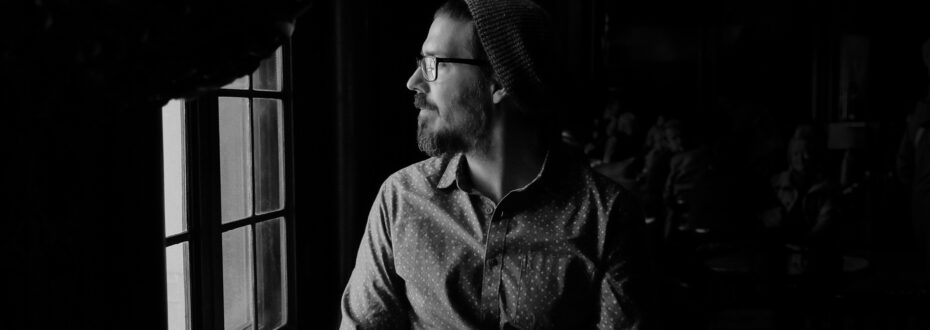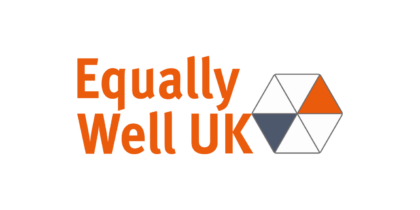By Nuwan Dissanayaka
Things are quiet at work right now. Well actually that’s not quite true. Work in our mental health team has never been busier than during the pandemic but, as work colleagues and friends, we have been quieter. Why? The reason is that, very sadly, a few of our patients have passed away over the last few months. The usual bustle of the team office has been hushed by a sombre veil, heads are down and behind the masks everyone’s just keeping busy. I guess it’s easier than talking about what’s really on our minds.
When we think of death it’s physical illness that comes to mind – medical wards, intensive care units and emergency departments and not psychiatric services, apart from when suicide is mentioned of course. Yet the people we support who have severe mental illness suffer disproportionately from serious physical conditions; they die considerably younger and in my particular field, poverty, substance use and homelessness can cut already shortened lives even shorter. I work in Assertive Outreach, a psychiatric specialty dedicated to the needs of those with severe mental illness with whom services have struggled to engage. In a healthcare landscape full of quick fixes, our team’s input isn’t time-limited and so we come to know our patients over many years. And, as with any enduring relationship, we form mutually strong bonds. I keep to the professional boundaries but in my heart these relationships sometimes really feel like friendships.
It has been a sad privilege to have been invited to funerals where I’ve heard the poignant recollections of the parents and the children they knew at a time before they ever needed someone like me.
Covid has brought an era of disconnection for us all but many of our patients were already “socially distanced”, their family ties severed by the consequences of psychosis and social stigma increasing their degree of separation. We are sometimes the only familiar faces they see and they have relied upon that contact more than ever during the pandemic. We haven’t escaped the Covid death toll but I suspect the nature of our losses will reflect the emerging national picture. Time alone will tell how many lives have been lost in lockdown to physical illness, both expected and not, as well as the so called “deaths of despair”, sacrificed to drugs and alcohol.
As a team we make time to pause and reflect, but it really isn’t easy. When it comes to dying, as clinicians we receive no meaningful training for what lies ahead. My grounding as a junior doctor started in my early twenties when I was tasked with breaking bad news to families about their loved ones’ passing, usually in the small hours. More than once in those darkened family rooms of the District General, I shared their tears. As a psychiatrist I have tried to comfort many bereaved relatives. We have grieved together and later shared fond memories. It has been a sad privilege to have been invited to funerals where I’ve heard the poignant recollections of the parents and the children they knew at a time before they ever needed someone like me. But at times we have been the only ones there to say that last farewell as their favourite song fills the empty chapel.
Our grief is balanced uncomfortably against self-doubt as we too search for answers, the relentless rumination being “Did I do everything I could?”
Quite understandably, families look for answers or even someone to blame for their senseless and tragic loss. And I have felt their anger which has had no place else to go. Our grief is balanced uncomfortably against self-doubt as we too search for answers, the relentless rumination being “Did I do everything I could?”, even when we know that we did. Anxiety peaks in the coroner’s court, the scenario my training has least prepared me for, and one which, contrary to its billing, can feel far more adversarial than inquisitorial. This atmosphere brings with it a certain defensiveness and sometimes lawyers are more concerned with litigation than learning from mistakes. Surely an environment which better enables us all to lower our guard in order to learn important lessons together would be welcomed by clinicians and loving families alike? And, just maybe, that shared aspiration would help us all to heal.
Hardest are the private moments. Broken sleep filled with bad dreams, crying which comes out of nowhere and the numbness that follows. I’ve rarely confided in anyone about my own experiences but I suspect I’m not alone. I find solace in two truths. Firstly, a recognition that the rawness of this pain is simply the price I pay for caring, and secondly the unquestionable impermanence of everything. This too shall pass.
now is the time for us to commit to change and to think about how, as clinicians, colleagues and compassionate employers in health and social care, we can find better ways to support each other in the face of the losses we will inevitably face
Life in the age of Coronavirus has made us all mindful of our own mortality but, when it happens, death often still comes as a surprise. The writer Haruki Murakami said “Death is not the opposite of life but a part of it” and there will be no escaping that reality in the aftermath of these strange times.
But long before Covid dominated our lives, we lost people we cared about. And long after we rejoice its passing, even if we address the stark inequalities faced by those with severe mental illness, those deaths will continue. So maybe now is the time for us to commit to change and to think about how, as clinicians, colleagues and compassionate employers in health and social care, we can find better ways to support each other in finding meaning and hope in the face of the losses we will inevitably face, so that we can continue to be there for those who still need us.








